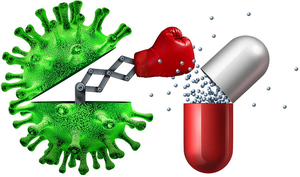New Delhi, 26 April (IANS). The problem of reduced effects of medicines in the treatment of infections, ie infections, has become a major health concern worldwide. Every year millions of people die due to this reason. A new research has shown that taking antibiotics for a short time can also cause prolonged resistance to our stomach bacteria.
Scientists at Stanford University, USA focused on an antibiotic called ‘Ciprofloxacin’ in this study. This drug is used in the treatment of bacterial infections of many parts of the body.
Research found that siprofloxacin can cause resistance independently in many different bacterial species and this effect may last for more than ten weeks.
The main cause of AMR is excessive or misuse of antibiotics.
Earlier studies were conducted in the lab or on animals, but in this new research, scientists studied 60 healthy humans and saw how bacteria change after antibiotic. This research is printed in a magazine called ‘Nature’.
Researchers asked 60 healthy adults to take 500 mg of siprofloxacin twice a day for five days. He took the stool samples of the participants and analyzed 5,665 bacterial genomes from a computer technology, with more than 2.2 million genetic changes (mutations).
Of these, 513 bacterial groups have found a change in a gene called ‘GYRA’, which is associated with making resistance from an antibiotic group called Fluoroquinolone. Florocinolone are antibiotics that disrupt the process of making DNA of bacteria and kill them.
Most mutations were formed in every person’s body differently. About 10 percent of the bacteria, who could first die of medicine, now became resistance. This resistance remained even after ten weeks. The special thing is that the bacteria which were more than before, were more likely to become resistance.
Scientists said, “This study shows that a short use of siprofloxacin can also develop resistance in stomach bacteria, and these changes may last long after the drug is over.”
Research given shows that bacteria in human abdomen keep changing themselves so that medicines do not affect them. This change has a large role of their genes and the surrounding environment.
-IANS
AS/










